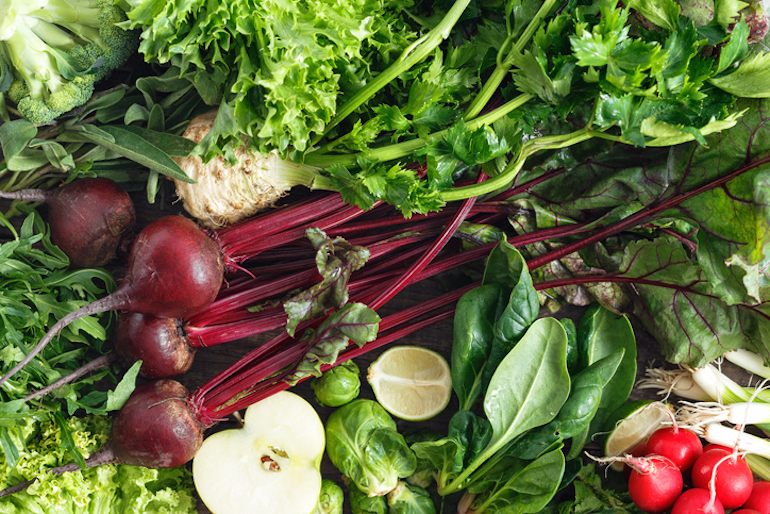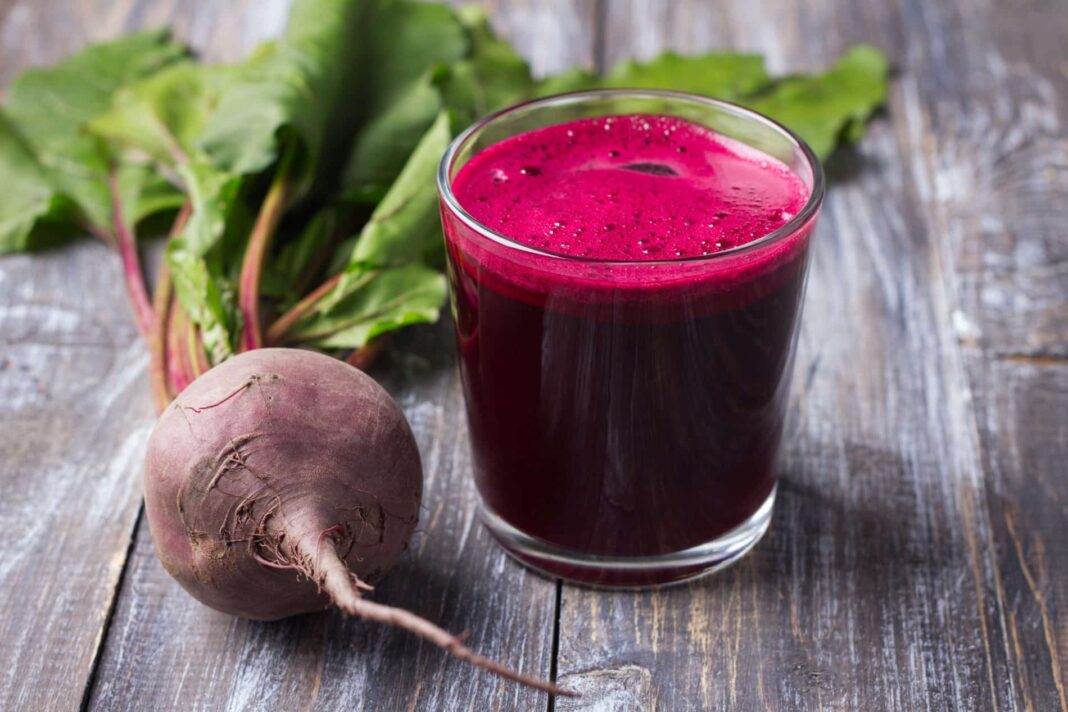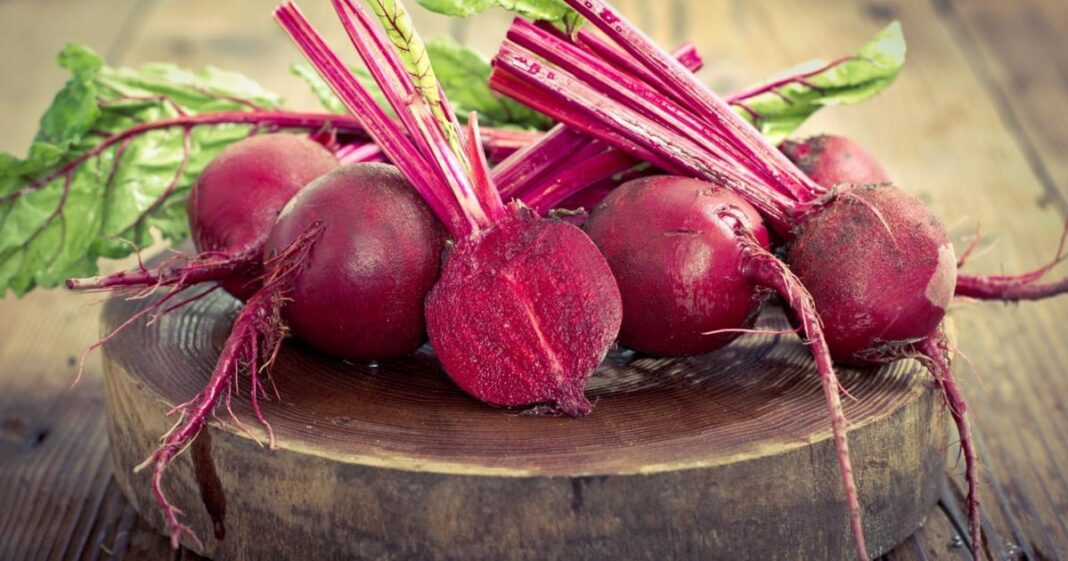Does Beetroot Juice Increase Nitric Acid?
Beetroot juice is a potent mixture of antioxidants, vitamins, and minerals and offers numerous health benefits.
Now researchers have found that beetroot juice helps lower blood pressure, improve athletic performance and reduce some form of inflammation.
Apart from having so many nutrients, the one that has put beetroot juice into the limelight is the presence of nitrates, which get converted into nitric acid or nitric oxide.
The nutrition profile of beetroot is very high, with plenty of vitamins and minerals. They also have bioactive compounds called betalains, which can be beneficial for health. The benefits are the same for eating raw beetroot or having beetroot juice.
And now fitness enthusiasts are raving about the benefits of having beetroot juice to enhance athletic performance.
It has become a new trend that drinking beetroot juice helps to fuel through intense workouts.
There are several supplements present using beetroot extracts, such as energy bars, sports drinks, and powders, that promise to improve endurance and boost energy.
Let us read ahead and find out what’s the truth behind it.

Beetroot Juice has Nitric Oxide
Just like many fruits and vegetables, beets are also rich in nitrates. Inorganic nitrates are commonly used in hotdogs, salami, bacon, and any preserved meat.
It is added to preserved meats to prevent the growth of bacteria and keep it fresh for longer, giving that pink color to meats.
The problem with inorganic nitrate is that it gets converted into nitrites and later into nitrosamines, which are cancer-causing chemicals. This is the exact reason why you may have heard that nitrates are not suitable for our bodies.
So, the best option is to consume organic nitrate, which is found in fruits and leafy vegetables. Most of these organic sources also have vitamin C, which acts as an inhibitor in the conversion process of nitrates to nitrosamines.
Why do we need Nitric Oxide?
Nitric Oxide is the critical component that helps in vasolidation, which means expanding blood vessels in the body. It is a necessary process, which allows more blood to flow through the blood vessels.
Research done using athletic performances has shown that nitric oxide in the body increases performance. This happens because more blood and oxygen flow through the expanded blood vessels, decreasing muscle soreness, faster recovery, and less pressure on the heart and muscles.
Nutritionist Mike Russel, Ph.D., says that the usage of nitric oxide is becoming increasingly important for recreational and professional athletes to improve endurance and performance.

Why do we need to consume more nitric oxide?
Looking at the role of nitric oxide in our body, we can clearly say that we need to consume more of it organically. As we age, we produce less nitric oxide, and this modern lifestyle is also a culprit. Stress, poor diet and less sleep discourage the production of nitric oxide in our bodies.
Nitric oxide is a molecule with a short life span and doesn’t stay in the body for very long. It is not like hormones that will remain for a few years. So, it would be best to keep on replenishing it through your diet or by using supplements.
Does Beetroot Juice Increase Nitric Oxide?
Several studies done on athletes have found that beetroot juice consumption increases their performance quality.
Beetroot juice has a high concentration of a component known as nitrates which get converted into nitric oxide after consumption.
The quantity of nitric oxide in beetroot juice is around 11g of it per liter of beetroot juice. Beetroots are a perfect source of dietary nitrate.
Its high nitric oxide level impacts blood flow, validation of blood vessels, heart rate, platelet aggregation, and more energy.
It also helps faster muscle recovery with more energy and endurance for better performance and less oxygen usage while working out.
Instead of consuming inorganic nitric oxide supplements, beetroot juice is a perfect organic source that is entirely safe. These days, many sports supplements use the extract of beets and promise to enhance their endurance level.
But what you must know is that excessive intake of beetroot juice may increase the level of nitric oxide in the body, which is not beneficial and may harm our body.
With excess nitrates in the body, it gets converted into N-nitroso compounds which are carcinogenic compounds. Consumption of nitrates in excessive amounts through other sources has increased the risk of having certain cancers.
There are no significant studies done to find out about the side effects of beetroot juice on our body.
So, for now, we can rest assure that consuming beetroot juice is safe provided we consume it within safe limits. There may be a change in the color of urine and stools after drinking beetroot juice, and it is nothing to be concerned about.
Nutrition in Beetroots
Beetroots help to supplement the body with nitric oxide, but it is also a powerhouse of nutrients.
Since beetroot is high in different vitamins and minerals, drinking the juice of beetroot can help prevent the deficiencies of these nutrients. In a 100 ml juice of organic beetroot, there are 29 calories but no fats. It also has fiber, sugar, carbohydrates, and protein.
Beetroot also has antioxidants that are known to reduce inflammation, cardiovascular disease, and oxidative stress.
It also provides the body with many essential vitamins and minerals like Folate, Iron, Magnesium, Manganese, Phosphorus, Calcium, and a few other nutrients.
Beetroots are full of nutrients and are healthy for our bodies. Apart from different vitamins and minerals, they also provide nitric oxide to our bodies. Nitric Oxide helps in the Vasolidation of blood vessels, faster recovery of muscles, and increases endurance.
The taste of beetroots may not be for everyone, but the nitric oxide present in beetroot makes it a sought-after organic source to replenish the body with nitric oxide.
And when you have a vegetable that provides your body with numerous vitamins and minerals, you get more reasons to make beetroot juice a part of your diet.



